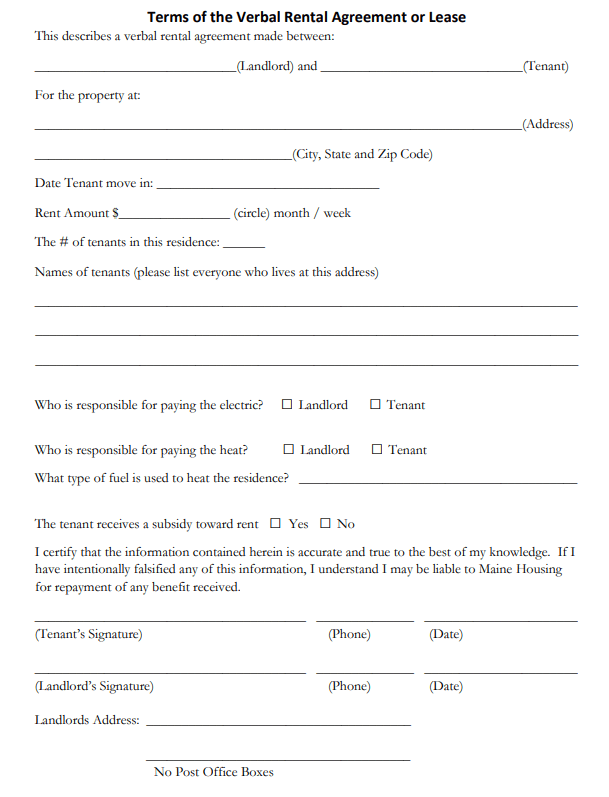
The Washington State Landlord Tenant Law (Washington RCW §§ 59) outlines the obligations of the landlord and the tenant in the event of taking a tenancy. Fair housing is mandatory in Washington where the tenants are protected against discrimination and biases by the state's fair housing laws.

Washington Verbal Rental Agreement or Lease will be signed only when the primary applicant declares that he has not entered into a written agreement. This lease or agreement is verbal. The landlord will complete the terms of this verbal rental agreement. Verbal Rental Agreements are legal in Washington state and
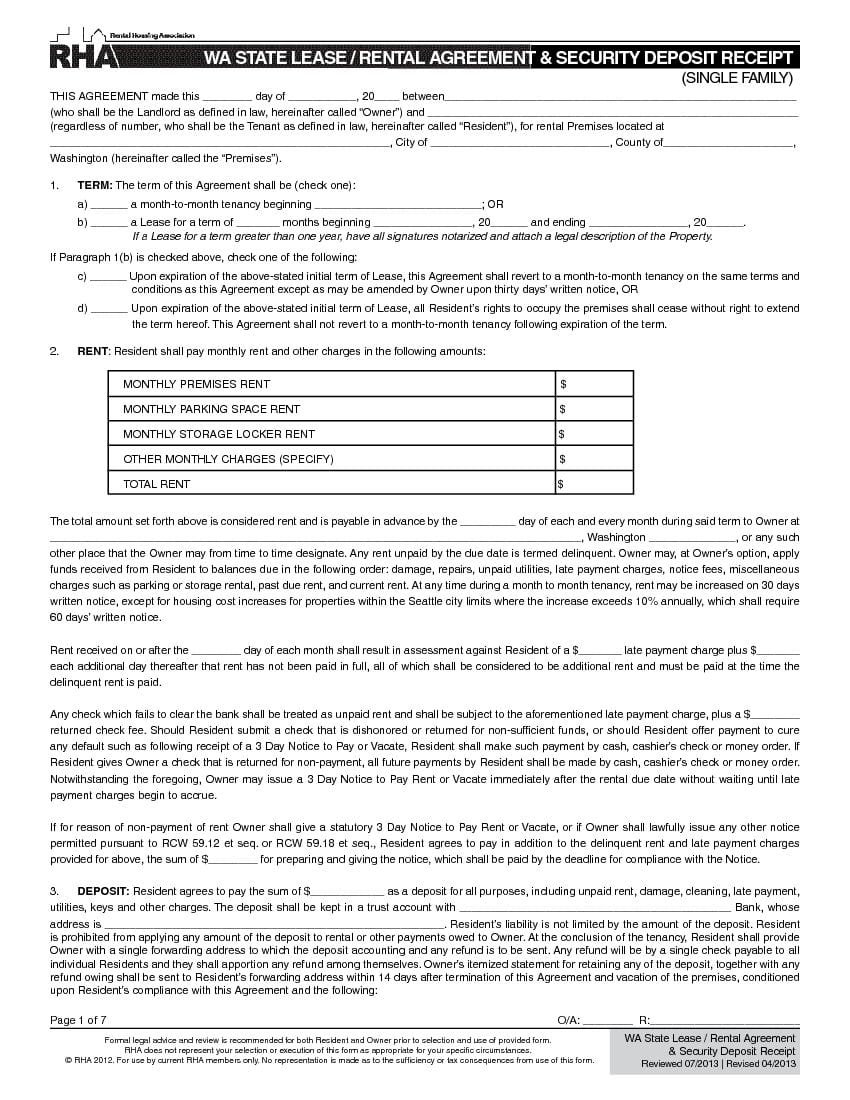
Washington Month to Month Rental Lease Agreement with security deposit receipt is a legal document. This template is a WA month-to-month agreement, but it contains the provision for the contract for more than one month. This lease agreement elaborately explains the terms and conditions, which safeguards the rights of the
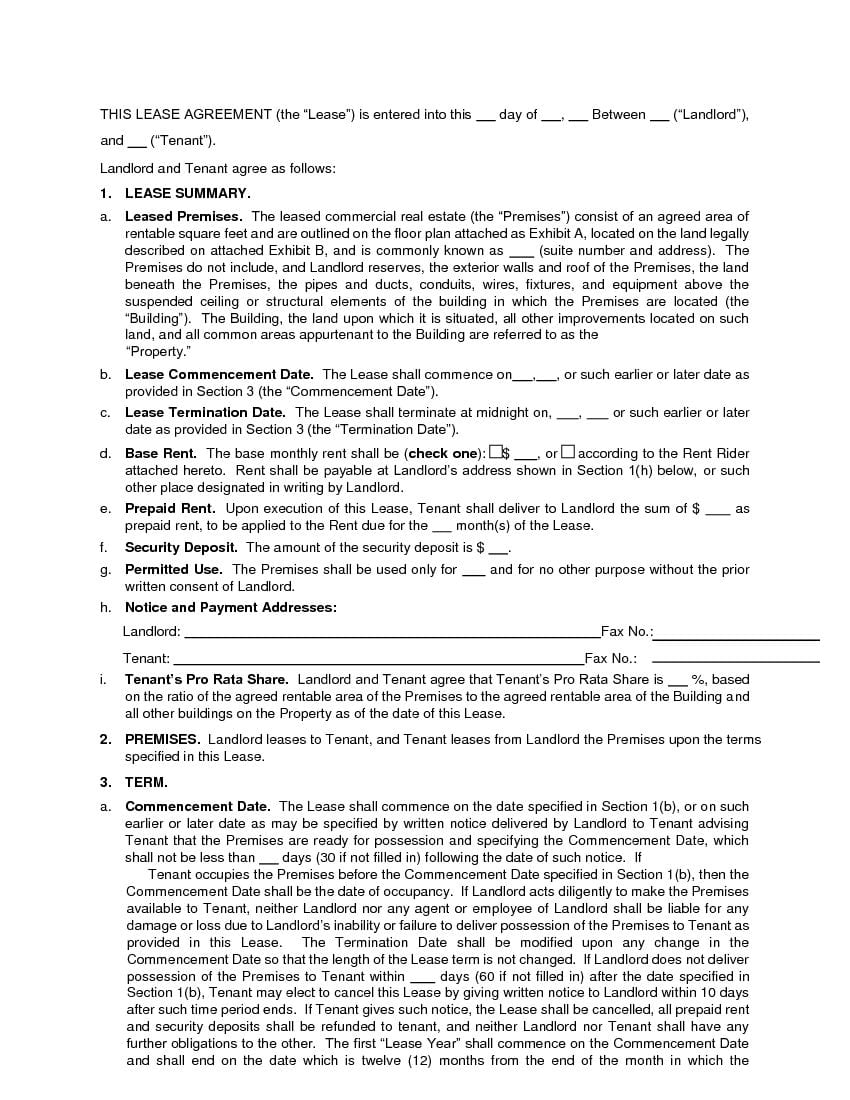
Washington commercial lease agreement is signed when taking a commercial property on lease. This is a comprehensive agreement and is legally recognized. Everything is elaborated in the Washington commercial lease agreement. Information about the landlord and the tenant are entered in details. This agreement safeguards the interests of the both
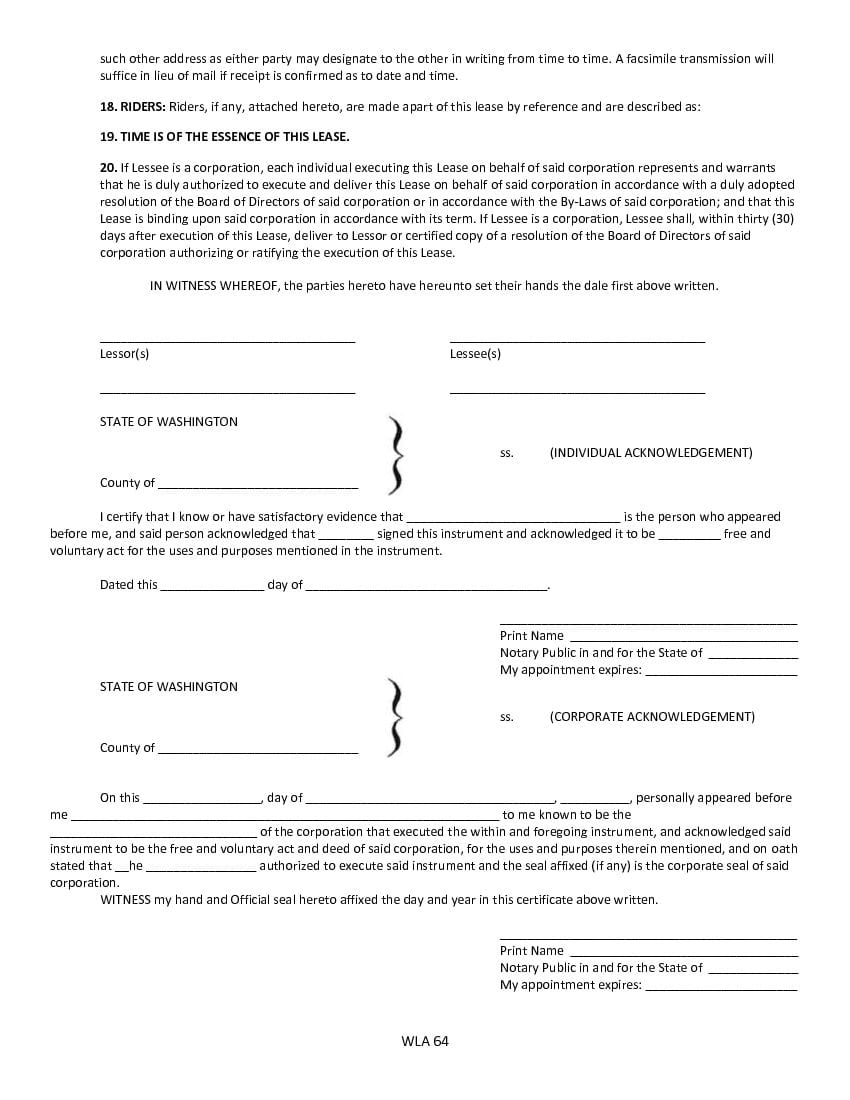
Washington Commercial Lease Agreement is the form used when giving a property on rent in the Washington State. Washington Commercial Lease Agreement is a legal form, and it bears legal coverage by the Government. This commercial lease agreement form contains the descriptions about the landlord, the tenant, and the property.
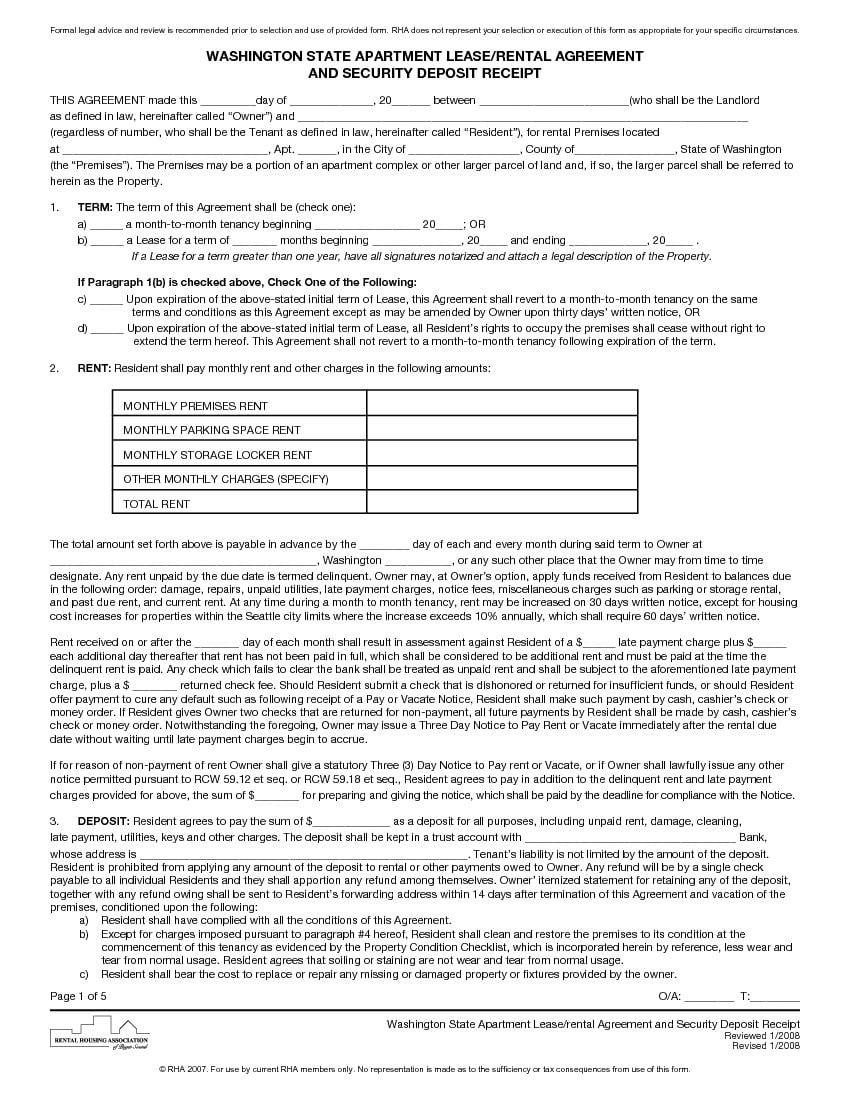
Washington State Apartment Lease/Rental Agreement and Security Deposit Receipt is a legal agreement, and also a security deposit receipt. All terms and conditions are elaborated in this lease agreement, along with the personal information about the landlord, the tenant, and the property. Steps to Fill the Washington Apartment Lease AgreementPersonal
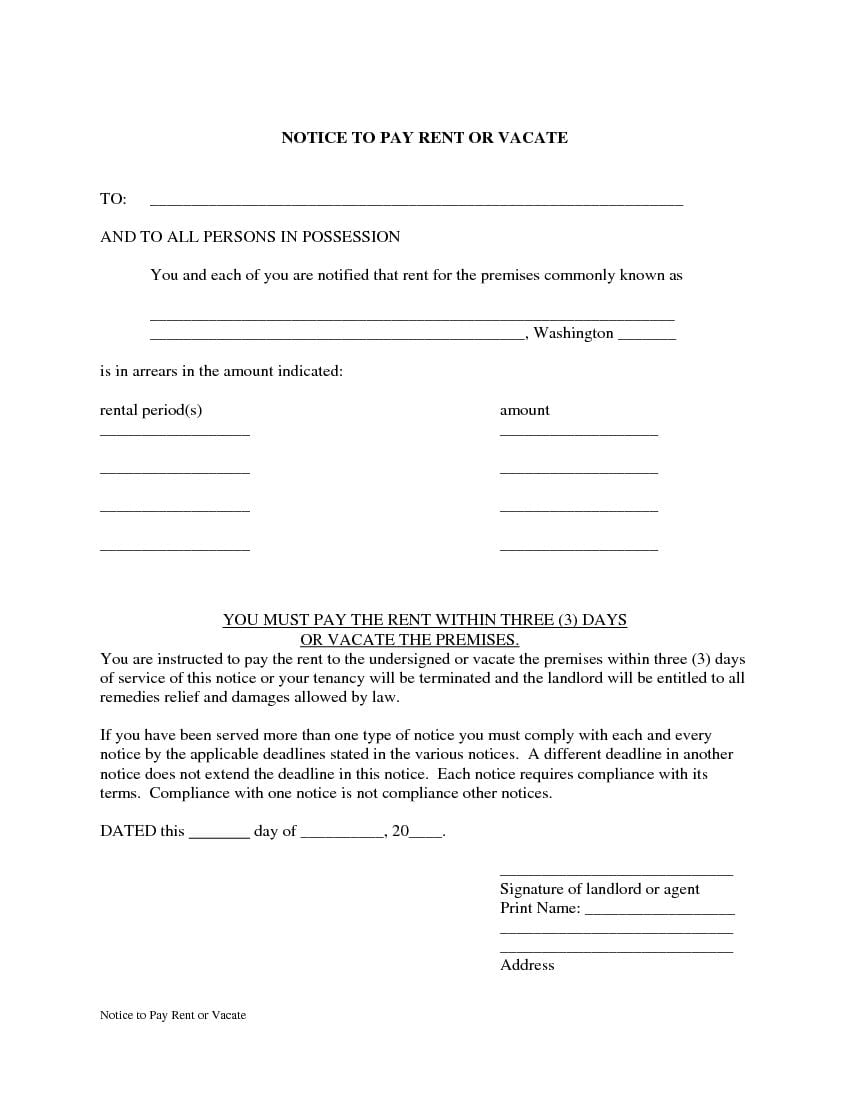
Washington Notice to pay rent or vacate is a notice, which the landlord serves to the tenant in case the tenant fails to pay the rent for more than one month. Steps to Fill the Washington Three Day Notice Pay Rent Vacate Notice to pay rent or vacate is addressed
There is no maximum deposit statute in Washington, and the landlord is entitled to receipt the interest paid on trust account deposits as stated by RCW §§ 59.18.270.
Pets deposits and additional fees, as well as non-refundable fees, are allowed bit should not be part of the security deposit according to RCW §§ 59.18.285.
The landlord should follow RCW §§ 59.18.280 and return the deposit after the tenant moves out within 21 days.
The landlord should provide the tenant with address, name and contact information of the landlord or any authorized person at the property as well as carry out the required duties stated under section RCW §§ 59.18.060. The landlord should also disclose any information related to lead paint hazards in the premise.
The tenant is required to carry out all the responsibilities ranging from keeping the premises clean, to non-involvement in legal activities as stated under section RCW §§ 59.18.130.
The landlord is supposed to give 30 days’ notice before increasing the rent for the month to month lease under section RCW §§ 59.18.140. Section (RCW §§ 59.18.115 allows the tenants to withhold the rent if essential; services are not provided as well as deducting rent when repairs are done by a licensed professional and the amount used should not exceed two months’ rent as stated under section RCW §§ 59.18.100.
The termination period given is 20 days before expiring of the ease. However, members of armed forces are allowed for less than 20 days as they can be deployed for duties under section RCW §§ 59.18.200(1a-b).
According to RCW §§ 59.12.030(3), the landlord can give a 3-day notice for nonpayment, three days for illegal activities or a nuisance under (RCW §§ 59.12.030(5) and ten days for lease violation under (RCW §§ 59.12.030(4).
The landlord-tenant laws in Washington are simple, clear and straightforward and it is essential to understand them well. An excellent grasp of the insights along the obligations and statutes enables the landlord and the tenant to solve legal issues and questions on their own without the needs of a lawyer.